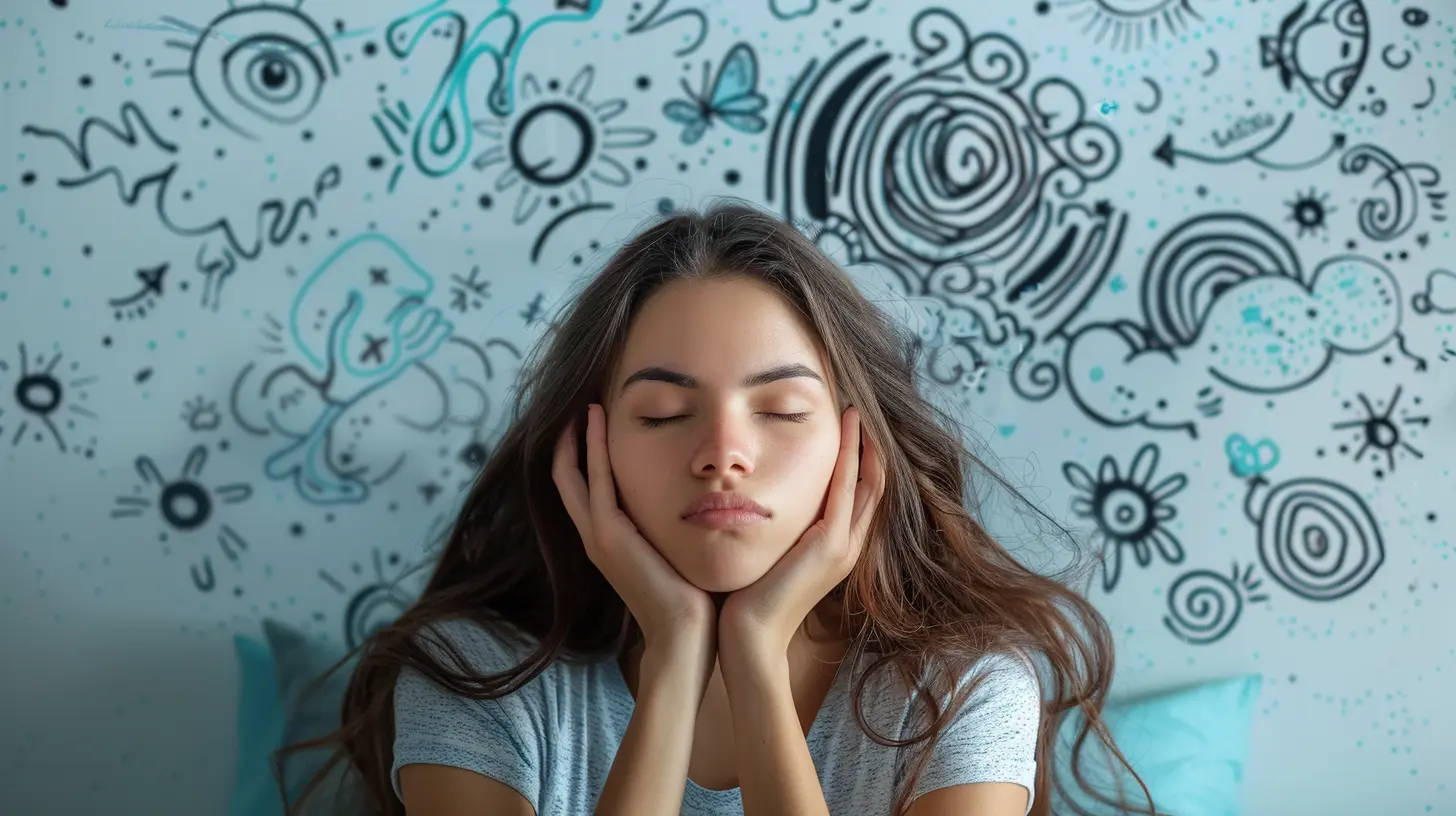Stress and Sleep: How to Break the Vicious Cycle
15 July 2025
Stress and sleep are locked in an unrelenting tug-of-war. When stress takes over, sleep suffers, and when sleep is inadequate, stress skyrockets. This cycle can feel like a never-ending loop of exhaustion and anxiety. But what if you could break free?
If you've ever found yourself tossing and turning at night because your mind just won’t shut off, you're not alone. Let's dive into how stress and sleep are intertwined and, more importantly, how you can hit the brakes on this harmful cycle. 
Understanding the Stress-Sleep Connection
Stress is a natural response to challenges in life. Your brain perceives a threat—whether it's a looming deadline, financial troubles, or personal issues—and goes into survival mode. This activates the fight-or-flight response, releasing hormones like cortisol and adrenaline that keep you alert and on edge.While this response is helpful in short bursts, chronic stress means your body stays in a heightened state for too long. And guess what? That’s terrible for sleep. When stress hormones flood your system, they prevent your body from winding down, making restful sleep nearly impossible.
On the flip side, lack of sleep increases stress levels. Your brain struggles to function properly, emotions feel magnified, and minor problems suddenly seem like massive obstacles. It's like pouring fuel on an already raging fire. 
Signs You're Stuck in the Stress-Sleep Cycle
If stress and sleep deprivation are tag-teaming against you, you'll likely notice some of these signs:- Difficulty falling asleep or staying asleep
- Waking up feeling exhausted despite spending hours in bed
- Racing thoughts the moment your head hits the pillow
- Increased irritability, mood swings, or anxiety
- Reduced focus and productivity during the day
- Increased reliance on caffeine or naps to power through
Sound familiar? If so, it’s time to take action before this cycle takes a toll on your mental and physical well-being. 
Breaking Free: Practical Steps to Regain Control
Escaping the stress-sleep spiral isn't about making one big change—it's about small, consistent habits that help both your mind and body reset. Let’s go over a few strategies to reclaim your nights and restore your calm.1. Create a Wind-Down Routine
Your brain needs a signal that it’s time to transition from work and worries to relaxation. A wind-down routine can help:- Dim the lights at least an hour before bed to signal melatonin production.
- Swap screens for books—blue light from phones and TVs tricks your brain into staying alert.
- Try deep breathing or meditation to slow down racing thoughts.
- Take a warm shower to relax tense muscles and prep for sleep.
Even 20 minutes of intentional relaxation before bed can make a world of difference.
2. Set a Consistent Sleep Schedule
Your body thrives on routine. Going to bed and waking up at the same time—even on weekends—keeps your internal clock stable. This helps regulate hormones and makes falling asleep easier over time.3. Manage Stress During the Day
A calmer day leads to a calmer night. Some ways to keep stress in check before it builds up:- Exercise—even a short walk reduces cortisol levels.
- Journaling—getting thoughts out of your head and onto paper eases mental clutter.
- Social connection—talking to friends strengthens emotional resilience.
When stress is tackled in the daylight hours, it’s less likely to haunt you at night.
4. Watch What You Eat (and Drink!)
Caffeine, sugar, and alcohol can all mess with your sleep. Try to:- Cut off caffeine by mid-afternoon to avoid late-night restlessness.
- Limit alcohol intake—while it might make you drowsy, it disrupts deep sleep.
- Eat balanced meals to prevent blood sugar spikes that can lead to energy crashes.
A well-fueled body leads to a well-rested mind.
5. Train Your Brain to Associate Bed with Sleep
If your bed doubles as an office or a Netflix binge-zone, your brain won’t automatically switch into sleep mode when you climb in. Use your bed only for sleep and intimacy. That way, when you get under the covers, your brain knows it’s time to power down.6. Try Progressive Muscle Relaxation
Ever noticed how stress makes your body tense? That tension doesn’t just vanish at night—it sits in your shoulders, neck, and jaw, making relaxation harder.Before bed, give this a go:
1. Start at your feet and tighten each muscle group for a few seconds before releasing.
2. Move up through your legs, core, arms, and face, progressively relaxing each area.
3. Finish with slow, deep breaths to bring your body fully into a state of rest.
This mindful practice helps release stored-up tension, making it easier to drift off. 
When to Seek Professional Help
Sometimes, stress and sleep issues go beyond what lifestyle changes can fix. If you’re experiencing:- Persistent insomnia despite trying multiple strategies
- Severe anxiety or depression affecting sleep
- Frequent nightmares or night terrors due to stress
It might be time to talk to a doctor or therapist. There’s no shame in seeking professional support—sleep and mental health are deeply connected, and getting help can be a game-changer.
Final Thoughts
Breaking the vicious cycle of stress and sleep struggles isn’t about overnight perfection—it’s about progress. By making small, intentional changes, you can create an environment that promotes relaxation, better sleep, and lower stress levels.Start small. Choose one or two tips from this article and implement them tonight. Over time, those small habits will compound into a healthier sleep routine and a more manageable stress response.
Remember, good sleep isn’t just a luxury—it’s a necessity. Take control, break the cycle, and wake up feeling truly rested.
all images in this post were generated using AI tools
Category:
Stress ManagementAuthor:

Gloria McVicar
Discussion
rate this article
1 comments
Sable Roberson
Great insights! Breaking this cycle is crucial.
August 10, 2025 at 3:23 AM

Gloria McVicar
Thank you! I'm glad you found the insights valuable. Breaking the cycle is indeed vital for better sleep and overall well-being.


